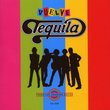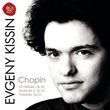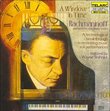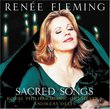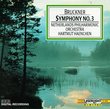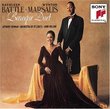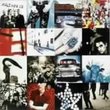| All Artists: Franz Joseph Haydn Title: Haydn: Popular String Quartets Members Wishing: 0 Total Copies: 0 Label: Asv Living Era Original Release Date: 1/1/2007 Re-Release Date: 3/27/2007 Genre: Classical Styles: Chamber Music, Historical Periods, Classical (c.1770-1830) Number of Discs: 4 SwapaCD Credits: 4 UPC: 680125040725 |
Search - Franz Joseph Haydn :: Haydn: Popular String Quartets
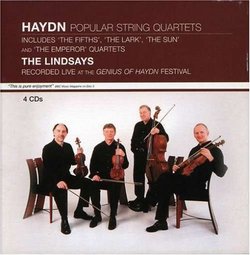 | Franz Joseph Haydn Haydn: Popular String Quartets Genre: Classical
|
Larger Image |
CD DetailsSimilar CDs
Similarly Requested CDs
|
CD ReviewsAs Well Be Hanged for a Horse as for a Hen Giordano Bruno | Wherever I am, I am. | 08/22/2008 (5 out of 5 stars) "Have I translated that proverb correctly? What it means in terms of the 12 string quartets by Joseph Haydn (1732-1809) recorded in this 4-CD set is that if you choose to disregard "historical performance practices" and to play the things any which way you hear them, then you'd better produce powerfully convincing music on its own terms. That's what the Lindsays did again and again in their iconoclastic career, playing Schubert with bravado and Haydn with introspection. Don't expect me to be consistent and to criticize them for lack of authenticity. Ideology is the servant of aesthetics, not the master. The fact is that I love the sound the Lindsays achieve, especially in the slow second and third movements of these very diverse compositions from long-separated decades of Haydn's career. That their Haydn sounds at times like the best Brahms you've ever heard means less to me than that it sounds Musical. One of the secrets of the Lindsay's thrilling tone color is their set of authentic early instruments of the highest quality: two Stradivarius violins, an Amati viola c. 1630, and a Ruggieri cello of 1694. Of course they use modern strings and bows. Now that the Lindsays are no longer playing together, music lovers would be wise to snap up their recordings while they are still marketed. This box set is a special opportunity; the twelve quartets were recorded live at the Genius of Haydn Festival in 1990. There are so many great modern string quartet ensembles, praise be to the Indifferent Improvisor, but The Lindsays are one of my three super favorites; a crown of flowers for anyone who can guess the other two!" The Lindsays Rule! Ralph J. Steinberg | New York, NY United States | 03/19/2010 (5 out of 5 stars) "I am of the opinion that Haydn's String Quartets are in general far more interesting and inventive than many of his symphonies, the "Sturm und Drang" Symphonies of course excepted. I have listened to half the works in this set and I can safely say that the Lindsay String Quartet makes the strongest case for these works. There is no precious, petite, overly refined music making here: All is drive, eloquence, passion. As in their Beethoven (I am gradually aquiring the entire new cycle), they sound more like a string orchestra than a collection of five individuals, so perfectly matched is their ensemble work (here, they resemble the hallowed Flonzaley Quartet of nearly a century ago). From this set, one can hear how much of Haydn Beethoven had absorbed, so stong and passionate does this music sound under the Lindsays. The fact that these are live performances simply adds to the enjoyment. The recorded sound is more distant than in the most recent Lindsay studio recordings, but it is satisfying in every way. It is really sad that the Lindsays have decided to disband and go their separate ways, as they sound like the most thrilling quartet since the Flonzaleys and old Budapests (I must say that interpretively, they are light years ahead of the admittedly more polished but rather matter-of-fact Budapests). If you want great chamber music played with depth and are not hung up about polish, no one will satisfy as much as the Lindsays. THE LINDSAYS RULE!"
|

 Track Listings (12) - Disc #1
Track Listings (12) - Disc #1